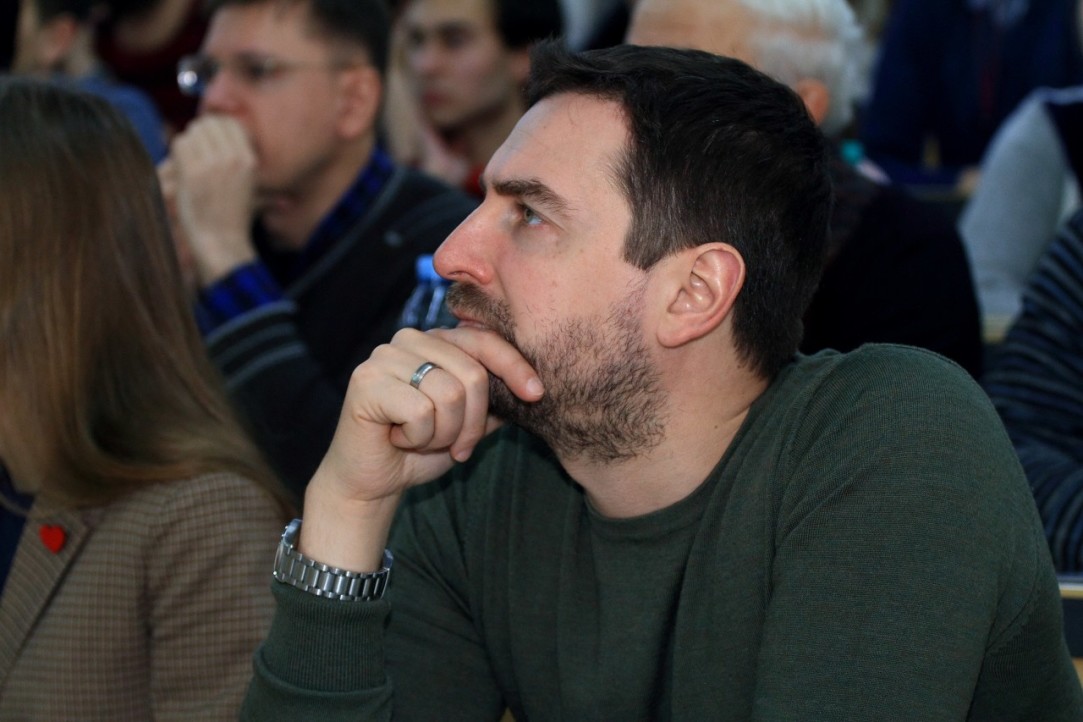- A
- A
- A
- АБB
- АБB
- АБB
- А
- А
- А
- А
- А
- Национальный исследовательский университет «Высшая школа экономики»
- Факультет экономических наук
- Департамент теоретической экономики
- Новости
- Публикация Александра Тарасова в Economic Theory
-
Департамент
- О департаменте
- Сотрудники
- Лучшие преподаватели
- Аспиранты
- Учебные курсы
- Конкурс ППС
- Планирование учебной нагрузки
- Наука в департаменте
109028, Москва,
Покровский бульвар 11, Администрация департамента: офисы S1029, S1030; тел: +7(495) 772-95-90 *27172, 27174, 27601, 28270
PhD, Университет Штата Пенсильвания
Департамент теоретической экономики объединяет высококвалифицированных специалистов в различных областях экономической теории, включая микро и макроэкономику, теорию денег и финансов, экономическую историю и историю экономических учений. Наша миссия — обеспечение преподавания экономических дисциплин в НИУ ВШЭ на уровне ведущих западных университетов с учетом специфики профилей подготовки студентов.
 Как богатые страны стали богатыми, и почему бедные страны остаются бедными. 11-е изд.
Как богатые страны стали богатыми, и почему бедные страны остаются бедными. 11-е изд.
Райнерт Э. С.
М.: Издательский дом НИУ ВШЭ, 2025.
Tarasova K., Gracheva D., Talov D. et al.
Studies in Higher Education. 2025. No. 1. P. 1-16.
Бондаренко К. А., Стародубцева М. Ф., Куприянов А. и др.
В кн.: Макроэкономика. Практикум странового анализа. М.: НИЦ Инфра-М, 2025. Гл. 2. С. 105-195.
Аналитические записки. 1. Банк России, 2024. № 10.
109028, Москва,
Покровский бульвар 11, Администрация департамента: офисы S1029, S1030; тел: +7(495) 772-95-90 *27172, 27174, 27601, 28270
PhD, Университет Штата Пенсильвания

Публикация Александра Тарасова в Economic Theory

This paper is concerned with cross-dependencies between endogenous market structure and tax policy. We extend the Mirrlees (Rev Econ Stud 38:175–208, 1971) mo
del of income taxation with a monopolistic competition framework with general additively separable consumer preferences. We show that quantity and variety distortions resulting from the market structure require adjustments to income tax policy, which also needs to be complemented with commodity or firm taxation to achieve the constrained social optimum. We calibrate the model and find that in policy design the failure to account for the market structure results in a welfare loss of 1.77%. Motivated by practical cases, we study a policy regime that is solely based on income taxation. We show that departures from the social optimum can be compensated by lower and less regressive income taxes and a smaller government compared to the regime with income and commodity taxes. We also examine the role of consumer preferences for policy outcomes and show that it is substantially amplified by an endogenous market structure.
Публикация доступна по ссылке: https://link.springer.com/article/10.1007/s00199-022-01463-z
Тарасов Александр Игоревич
Департамент теоретической экономики: Руководитель департамента
- О ВЫШКЕ
- Цифры и факты
- Руководство и структура
- Устойчивое развитие в НИУ ВШЭ
- Преподаватели и сотрудники
- Корпуса и общежития
- Закупки
- Обращения граждан в НИУ ВШЭ
- Фонд целевого капитала
- Противодействие коррупции
- Сведения о доходах, расходах, об имуществе и обязательствах имущественного характера
- Сведения об образовательной организации
- Людям с ограниченными возможностями здоровья
- Единая платежная страница
- Работа в Вышке
- ОБРАЗОВАНИЕ
- Лицей
- Довузовская подготовка
- Олимпиады
- Прием в бакалавриат
- Вышка+
- Прием в магистратуру
- Аспирантура
- Дополнительное образование
- Центр развития карьеры
- Бизнес-инкубатор ВШЭ
- Образовательные партнерства
- Обратная связь и взаимодействие с получателями услуг
-
http://www.minobrnauki.gov.ru/
Министерство науки и высшего образования РФ
-
https://edu.gov.ru/
Министерство просвещения РФ
-
http://www.edu.ru
Федеральный портал «Российское образование»
-
https://elearning.hse.ru/mooc
Массовые открытые онлайн-курсы
- © НИУ ВШЭ 1993–2025 Адреса и контакты Условия использования материалов Политика конфиденциальности Карта сайта
- Редактору





